Unit Spotlights
The following gallery features a number of unit spotlights sharing stories of progress from among the 50 unit DEI Strategic Plans.
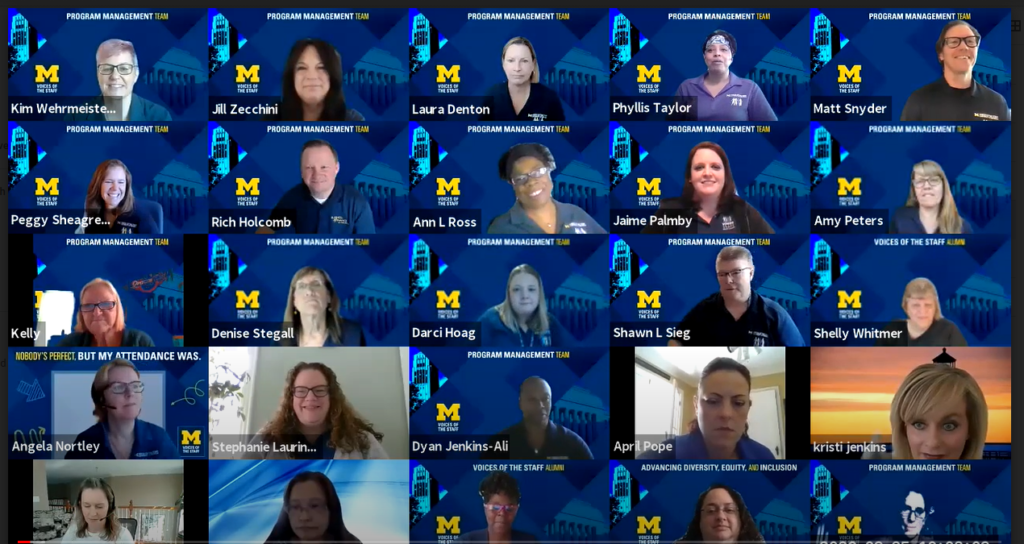
Voices of the Staff was created in 2004 as a mechanism for U-M staff members to have a voice in the university's administration. Participants act as a sounding board for University leadership, identify staff interests and concerns, and serve as an advisory group on issues important to staff, and on the development, review or revision of programs and policies that address those issues.
Voices of the Staff is a reflection of our organization, with participants chosen to be a microcosm of the university. For the past 15 years, Voices has contributed to U-M’s research mission by collaborating with faculty partners. More than 2,500 staff participated on network teams, attended conferences and shared at town hall meetings. Thousands more shared feedback through surveys. Voices of the Staff has made an impact in the areas of DEI initiatives, parking, career development, onboarding, health and well-being, technology, and more.
In summer, 2020, members of Voices of the Staff worked quickly to understand and advocate for the needs of university staff members in response to the COVID-19 pandemic. Current members and alumni served as a focus group in completing a survey on Caregiving Needs Assessment administered by the Work-Life Resource Center and MHealthy, informing enhanced information about family caregiving on the Work-Life Resources website. Several current members and alumni members of Voices are serving on the Workplace Innovation and the Staff Experience (WISE) Committee. The committee is charged to “provide short and long-term recommendations to the President and Executive Officers addressing expectations and requirements for staff members to sustain their work as the campus emerges from the pandemic and beyond, whether remotely, in-person or in a hybrid form. Recommendations should recognize the unique aspects of staff based on their roles and areas of work across the university.” For more information on this dynamic and dedicated group of staff advocates, see the Voices of the Staff 2019 Annual Report.
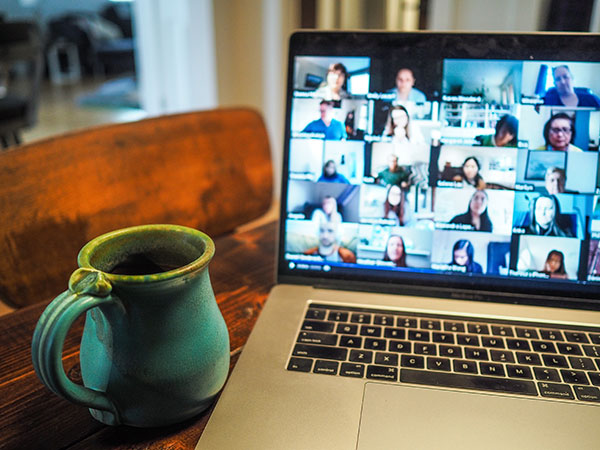
The reality of COVID-19 in Year Four required that we find new ways to accomplish our work of creating a more inclusive workplace and equitable climate. Given our inability to host in-person training, film screenings, discussions, workshops, and other activities, we developed DEI ALIVE: Active Learning In (a) Virtual Environment. This “physically distant” engagement series uses DEI-related materials distributed via email to seed virtual discussions. DEI ALIVE aims to provide a supportive space for respectful dialogue across differences, without fear of judgment or condemnation. Through a series of conversations, we addressed subjects that many of us think about but might not be comfortable discussing. Topics for discussion based on shared materials included the effects of COVID-19 on communities of color, learning to embrace difficult discussions about racism, acknowledging systemic racism and its effects on society, and segregation by design.

This was the first virtual event held by the OEM DEI Committee after canceling other in-person events scheduled from March–May due to the impact of COVID-19. Staff members were encouraged to view the documentary on their own; this was followed by a subsequent 90-minute debrief and discussion session, which included 25 participants.
This documentary is highly recommended and helps viewers understand how to practice inclusivity regarding undocumented/DACA status with prospective and current students, families and community-based organizations. This piece was well presented and included a personal testimony that helped participants reflect on their preconceived notions—which led to rich dialogue and learning. In the post-event survey, participants noted appreciation for personal experiences that shed light on intersecting identities, interest in engaging in conversation around topics of citizenship and exposure to unfamiliar vocabulary.
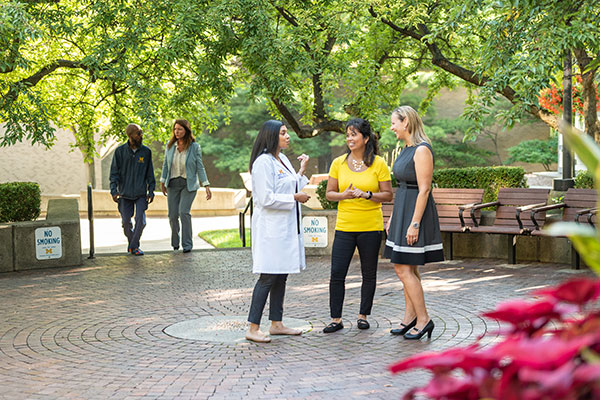
At Michigan Medicine, implementation of the five-year strategic plan ignited a process of shifting the organizational climate that has not only spread across the organization, but has generated national attention.
This past year, the unit received both the 2019 Health Professions Higher Education Excellence in Diversity (HEED) award from INSIGHT Into Diversity and BlackDoctor.org’s 2019–2020 Top Hospitals for Diversity and Equity award. INSIGHT Into Diversity magazine is the oldest and largest diversity-focused publication in higher education. Its annual Health Professions HEED Award is a national honor recognizing U.S. colleges and universities that demonstrate an outstanding commitment to diversity and inclusion. BlackDoctor.org is the leading health and wellness destination for African Americans, with an audience of more than 19 million.
In addition, Healthgrades honored Michigan Medicine with its Outstanding Patient Experience Award for 2020. The award recognizes hospitals that deliver an overall positive experience as reported by patients. According to survey results, 80 percent of participants gave University Hospital a 9 out of 10 rating, and 85 percent said they would definitely recommend the hospital to friends or loved ones.
“We are honored that the strategic DEI initiatives that we have instituted are being recognized nationwide alongside health systems that are leading the way for health equity,” said David J. Brown, MD, associate vice president and associate dean of the Office for Health Equity and Inclusion. “ This has set the stage for our developing programs that take a deeper dive into cultural humility, health care disparities and social determinants of health.” This is the first year that Michigan Medicine – University Hospital has received this honor.
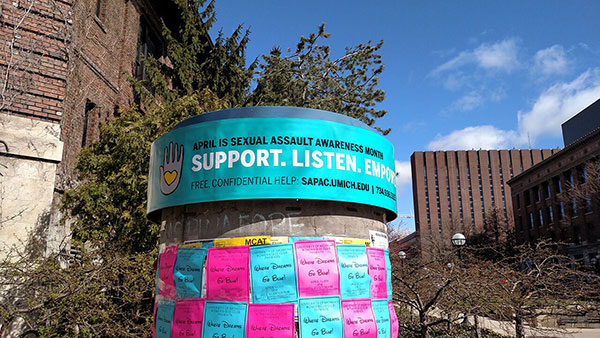
Following the onset of the COVID pandemic, the U-M Division of Public Safety and Security’s DEI's Program and its Special Victims Unit (SVU) participated in a virtual event titled “Addressing Sexual Misconduct,” coordinated by LSA’s Comprehensive Studies and Bridge programs.
During the event, DPSS shared resources and information about their services alongside the Sexual Assault Prevention and Awareness Center (SAPAC), Office for Institutional Equity, Counseling and Psychological Services (CAPS) and the Spectrum Center, with special emphasis on the SVU unit’s commitment to “start by believing” and trauma-informed responses. Among the key outreach goals were engaging marginalized populations, building trust and providing a supportive community to assist first-year students transitioning to U-M. This event provided an opportunity for DPSS to connect with U-M students virtually, despite COVID-19 challenges.
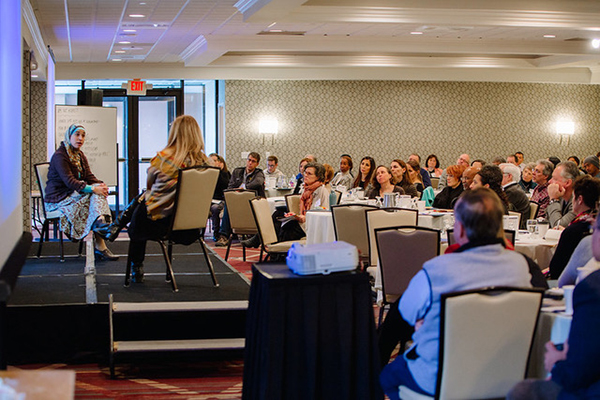
During Year Four, the CRLT Players presented six daylong sessions to a total of 384 campus leaders on the subject of creating climates resistant to sexual harassment. These events focused on enhancing participants’ understanding of sexual harassment, expanding their capacity to recognize and respond to problematic behavior and providing leadership teams with structured time to plan unit-specific interventions around culture change.
The theatre program also created a series of video case studies (47+ minutes of material) to support modules on student identity and classroom climate for use in a multi-campus, NSF-funded MOOC on the topic of inclusive teaching for STEM educators.

In Year Four (Spring 2020), CEW+ launched a new interview project to learn about the lived experiences of individuals relating to COVID-19. The goals of this initiative were to:
- gather stories to help normalize our shared but unique experiences;
- highlight each individual’s resilience and amplify the voices of diverse members of the U-M community;
- allow people to be heard in this time of increased isolation; and
- share stories across social media platforms, so the U-M and broader community could learn from each other.
This podcast series was reviewed and accepted by Apple for inclusion in iTunes. Listen to it here.
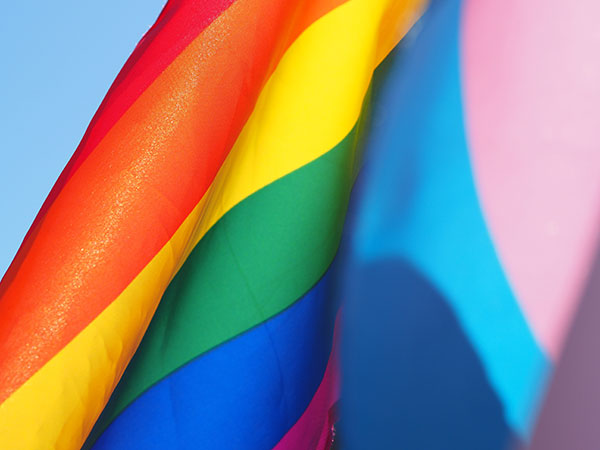
On October 6, 2019, Michigan men's and women's soccer hosted the first LGBTQ+ Pride Games in the history of Michigan Athletics. The idea was inspired by the 50th anniversary of Stonewall and our student-athletes’ intentional commitment to utilize sport to establish an inclusive space for all fans to come together and support the LGBTQ+ community.
The games were brought to life through a collaboration among our ticketing and game presentation staff members, our counseling team, coaching staff and the Michigan Athletics DEI committee. The event was supported by Athletes Connected (a joint program of Athletics and the Depression Center), the Spectrum Center and Athlete Ally, a national organization that champions LGBTQ+ equality efforts. Each organization set up a table on the plaza near the main bleachers to hand out pins, stickers and resources. Fans could pick up Pride flags or stickers as giveaways, and M Den added a rainbow Michigan t-shirt to their collection, which was available for sale.
Both teams wore Pride t-shirts for warm-ups, and some student-athletes donned other rainbow gear as well. During halftime at both games, a public service announcement was shown featuring several student-athletes, Athletic Director Warde Manuel and both head soccer coaches. Michigan Athletics looks forward to hosting more LGBTQ+ Pride Games in the future.
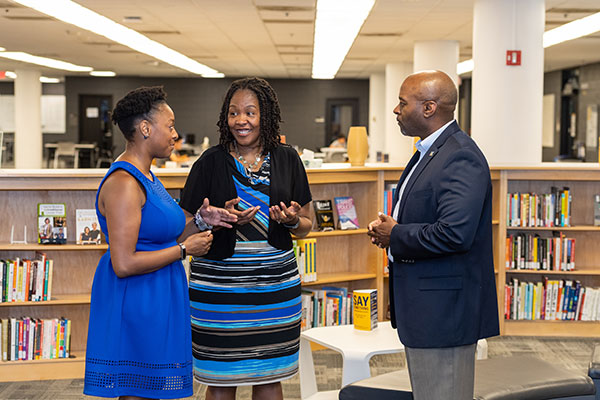
| As a new committee modeled after STRIDE (an initiative focused on removing implicit bias from faculty recruitment and selection), the RISE Committee aims to build respect and inclusion in academic workplace climates. RISE offers an interactive workshop on climate, “Raising Respect,” to campus leaders (broadly defined). The workshop is evidence-based and action-oriented, presenting both data and concrete strategies. The first segment reviews research, conducted at U-M and beyond, to make a case for caring about respectful workplace climates. The remainder of the workshop is discussion-based, addressing steps leaders can take to cultivate more respectful and inclusive climates in their units. To facilitate a virtual community for campus leaders thinking about climate issues during the pandemic, RISE turned to sharing electronic resources, both through its “RISE Together” message campaign and through its redesigned virtual “Raising Respect” workshop that now includes video resources and online interactive components. See the RISE Committee’s page on the ADVANCE website for climate-themed resources. |
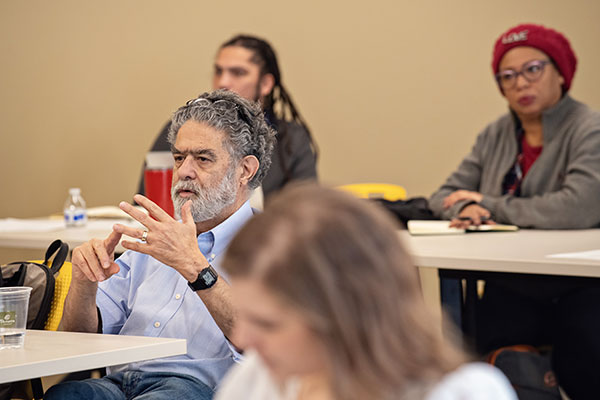
The Black Lives Matter protests sparked a renewed commitment to racial equity across Taubman College. We knew that our response must:
- acknowledge the pain the African American community was enduring from systemic societal oppression and
- express our collective outrage and absolute dedication to racial equity.
As a first step, we hosted a town hall co-designed with, among others, African American students, faculty, staff and alumni. Over a period of three hours, with more than 150 people in attendance, Black community members expressed their pain and White community members expressed their sorrow at the impact of white supremacy on their teaching, learning and work. From this, students and alumni developed the “Design Justice Actions,” inspired by the Design as Protest group.
The College then embedded—where possible and where consistent with law—the principles underlying their proposals into its thinking for its Year Five DEI Strategic Plan, building on work already underway to center the curriculum on social justice, prioritize research that advances DEI, create a culture of belonging and promote equitable policies and practices.
We also developed an Anti-Racism Resource Guide and created a racial equity framework. Throughout the summer, students met with faculty to redesign our curriculum, staff launched a Racial Equity Workgroup and our Chief Diversity Officer was appointed to the College leadership team.

Beginning in March 2020, Associate Dean for Research Dr. Rogério Meireles Pinto, along with the Faculty Allies for Diversity, led a series of conversations focused on the intersectional and compounding impact of COVID-19.
The sessions began as a way to create space for engaging our community during the virtual transition around the topics of xenophobia, stigmatization and discrimination arising in response to the pandemic. In collaboration with various offices and committees, we hosted local and national guest panelists. Under the overarching theme of “Identities and Vulnerabilities,” discussions explored the impact of COVID-19 on vulnerable communities and populations and analyzed responses to shifting trends in relation to social work practices.
The series, which reached a global audience, also explored COVID-19 as it relates to white supremacy, police brutality and anti-Blackness. Topics included identity and vulnerability to COVID-19; impact of COVID-19 on imprisoned populations; COVID-19, white supremacy and Black women’s concerns; and COVID-19 disparities and returning to work and school, among others.

The killings of George Floyd and Breonna Taylor by police officers and Ahmaud Arbery by vigilantes this past year resulted in a global Black Lives Matter movement that now offers the potential for permanent change in systems and policies. This opportunity to address systemic racism, bias and health care disparities in our society has, in turn, resulted in a need for more education and discourse.
In June 2020, the School of Dentistry launched a series on Race, Anti-Racism and Racial Healing (RARH), led by a facilitator from Pathforward Consulting. This series was supported by the Dean and all five academic Department Chairs. Events in this three-part series included a Listening Session on RARH and presentations on Impactful Allyship and Next Steps Charting the Path Forward. We also offered Safe Space Dialogue sessions for students, staff and faculty.
These virtual activities allowed our community to further engage by sharing thoughts and videos, and by lending their voices to the conversation for change. Initial feedback included comments such as "Grateful to our school for launching this series," "Thankful to work in a place where all voices are heard and valued" and "We need to have more events and opportunities like this."
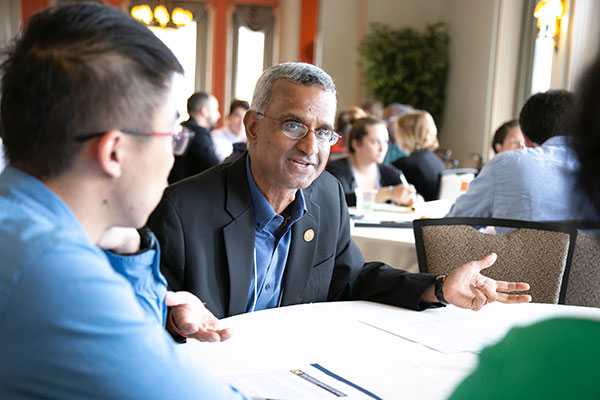
There is very little existing literature which differentiates the needs of graduate students with disabilities from undergraduate students with disabilities. As a result, there are too few studies that provide evidence for how to best support the academic, professional, and personal success of graduate students in their multifaceted roles as scholars, researchers, and instructors.
Initiated as part of the Year Four DEI plan, the Rackham Graduate Students with Disabilities Needs Assessment included both a mixed-methods survey of hundreds of graduate students as well as qualitative data from numerous focus groups. Based on this information, the committee conducting the study released a report with a number of recommendations for how both U-M central administration and Rackham can improve support and services for graduate students with disabilities on our campus.
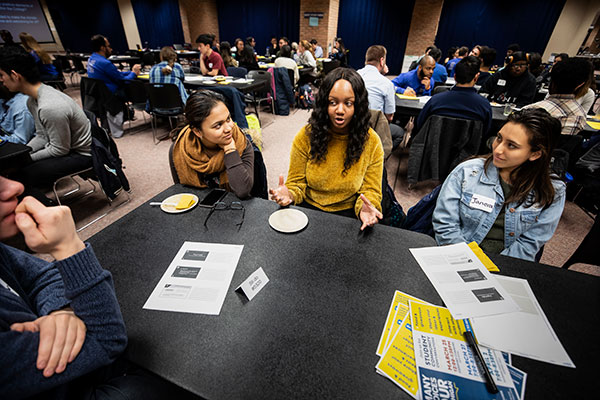
In FY20, the University of Michigan raised $13,811,767 for DEI initiatives from 14,440 unique donors. These efforts will continue to evolve as we address the challenges of reporting on DEI fundraising. Also in Year Four:
- Vice Provost Rob Sellers launched U-M's first DEI Leadership Council, composed of volunteers who have donated to campuswide DEI initiatives as well as to external entities, such as the Alumni Association (AAUM), that offer programs that benefit U-M students.
- Marchell Willian (LSA '84) endowed a George Floyd Memorial Scholarship Fund at U-M. This need-based scholarship will be awarded annually with a preference for students who participated in Wolverine Pathways.
- To increase donor base diversity, OUD partnered with major gifts development teams across campus to conduct a two-part, community-wide feedback and prioritization exercise around new areas of opportunity.
- Approximately 40 major gift officers from OUD and SCUs volunteered to assess U-M's current approach to engaging NextGen and Women donors. Engagement strategies will include studying the feasibility of a women’s council for the next campaign and exploring ways to enhance the NextGen donor digital experience.
- Brandi Hudson (AB ’01) spearheaded a bold initiative to engage Black and African American alumni and friends in giving to U-M,. The African American Giving Initiative will debut in FY21.
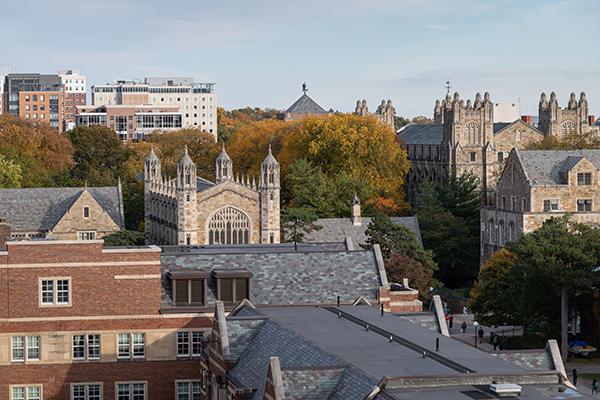
The University continued to make substantial progress on NAGPRA compliance. To date, the U-M has transferred approximately 164 site collections to the appropriate Tribes, including over 800 individuals along with funerary objects. The success of this work has led to various partnerships with Native American Tribes and communities, among them:
- The Heritage Seeds and Indigenous Collaborative Garden, organized by Tribal partners, the U-M Museum of Anthropological Archaeology (UMMAA), and the Matthaei Botanical Gardens and Nichols Arboretum, has planted indigenous seeds annually at the University since 2017. The goal is to plant seeds identified among the UMMAA’s collections that were originally acquired from Anishinabek communities involved in the collaborative effort. Read more about it here or watch this short video presentation.
- Wiidanokeendiwag (They Work With Each Other) Joint Basket Exhibit was a collaborative project between the Ziibiwing Center of Anishinabe Culture and Lifeways (in Mt. Pleasant, Michigan) and the UMMAA in 2019. The project marked the first exhibition of baskets from UMMAA’s collections that were crafted by Anishinabek artists.
- The Mnomen Initiative received a Catalyst Grant from the Graham Sustainability Institute in 2020 to study the feasibility of restoring mnomen (wild rice) to some University-owned properties within the State of Michigan.